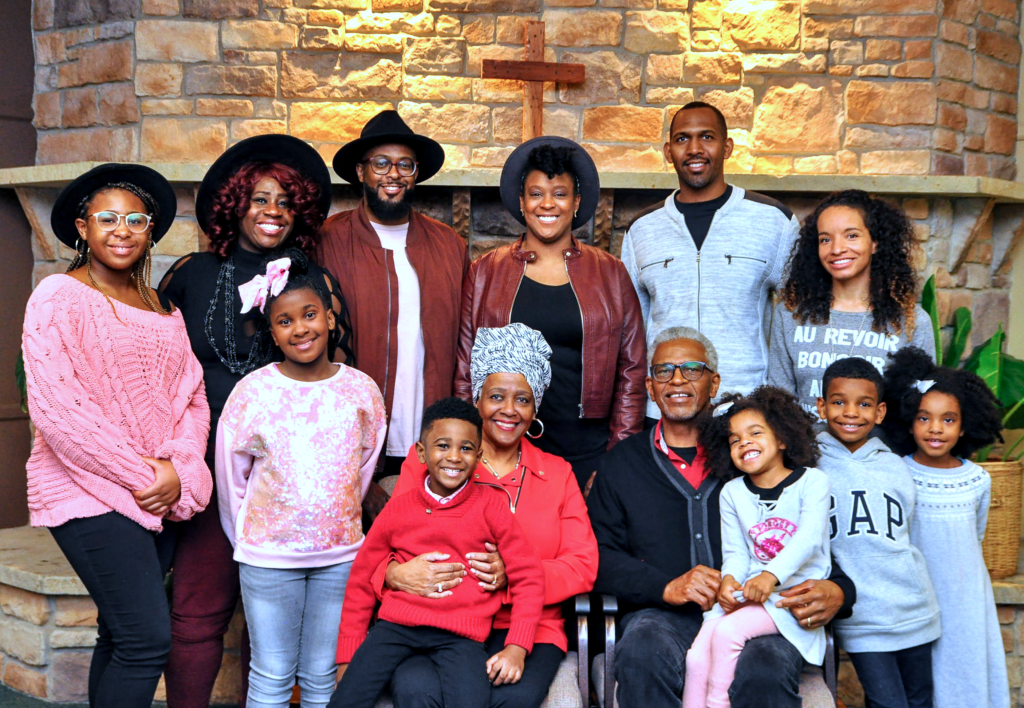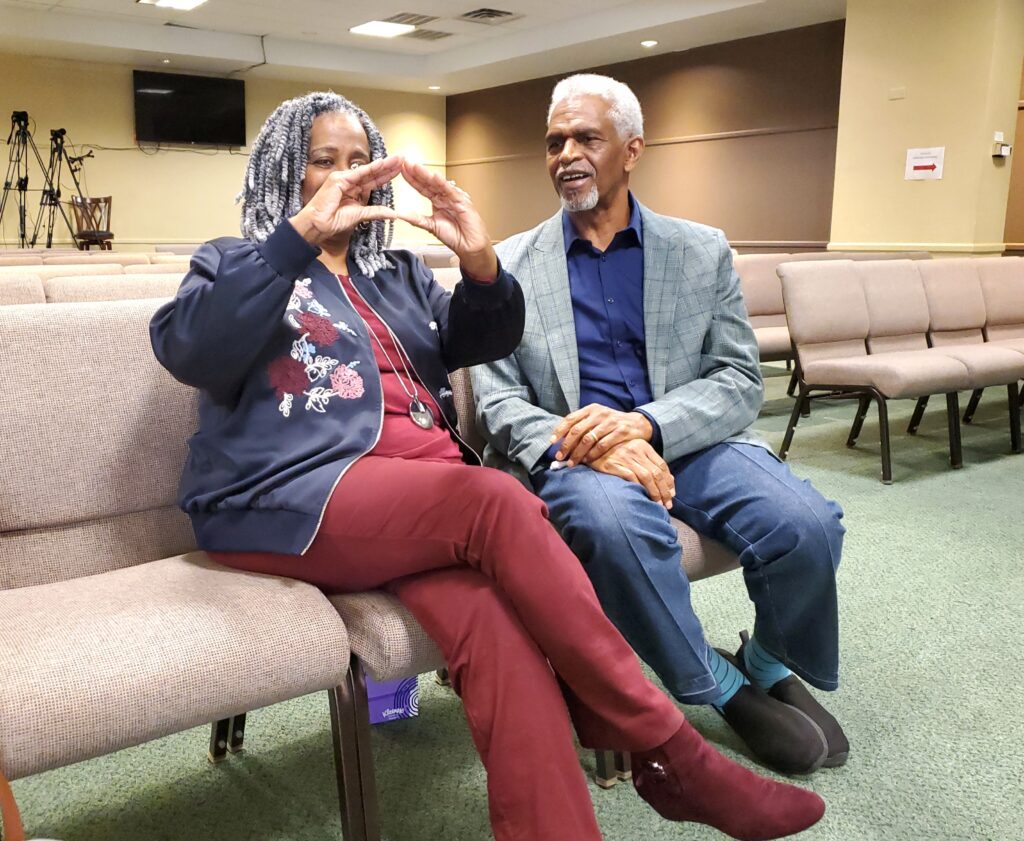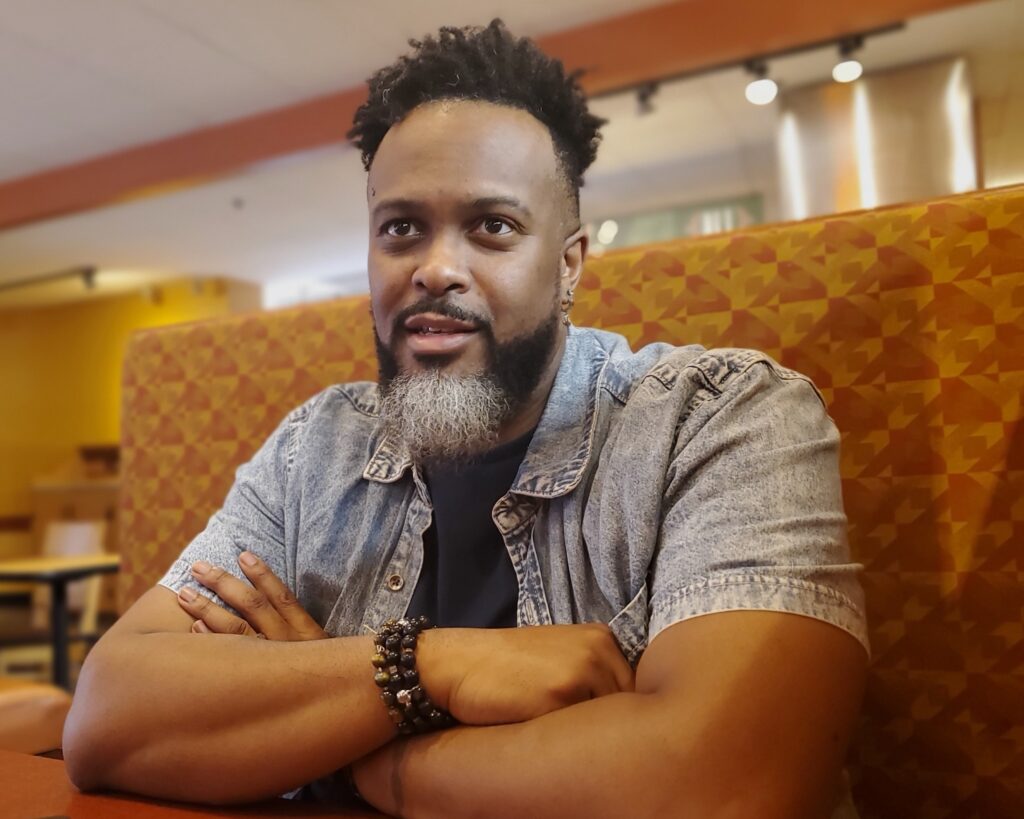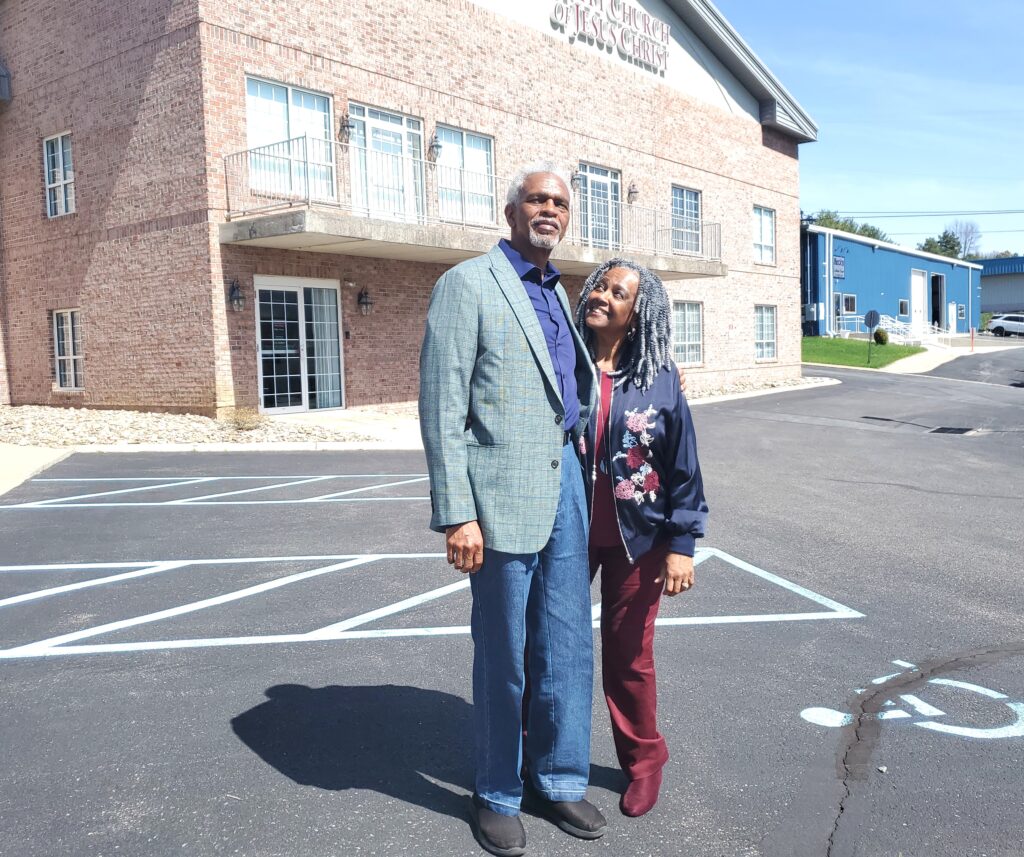I’m a big fan of unsung heroes. The kind of people who are more interested in doing the deed than in claiming the credit.
Among our area’s most unassuming superstars, Pastor Harold McKenzie and his wife, Sherren, are near the top of my list. Although they are greatly beloved within their congregation, Unity Church of Jesus Christ, they are not especially well-known in the broader community. But they should be.
After all, the McKenzies have reached the 50-year marriage mark together—though each lacked a model of marital success while growing up. They’ve successfully raised three children (Ephraim, Jason and Joi) as minority figures in a mostly-white community. They’ve served in Christian ministry for 45 years and helped Unity Church of Jesus Christ to emerge from near-ruin to a position of financial and spiritual strength. And they’ve done all they can do to lift up local citizens who are African American and those who represent other ethnicities.
“They live a life of generosity,” said Linda Wade, a long-time church member and the godmother for all three McKenzie children. “And we see that as congregants. So therefore it encourages us to be generous.”
Clearly, the McKenzies deserve appreciation for past heroics and encouragement to keep going strong into the future. That’s why it’s so fitting that Unity Church is holding a monthlong celebration throughout April—rejoicing over the church’s 46 years of existence and the McKenzies’ 45 years of formal Christian service.
As for me, I would most certainly tip my hat to Harold and Sherren, but they deserve much more than that. So I took an hour or two to visit with them last week and came away with a wealth of inspiring comments and thrilling stories. Here are selected portions from the hearts and minds of the McKenzies.

How do you folks feel about reaching these milestones—46 years for Unity Church and 45 years for your own pastoral ministry?
Harold: I feel blessed and I think Sherren would say the same. I would say that God can do anything through anyone who will just try to love him and yield their lives to him. We’re here after 45 years not because we were so great or we had all the knowledge or anything. God has produced things in us and through us, and those things continue because of his goodness.
Do you have anything to add?
Sherren: Well, when they were mentioning 45 years in ministry, I didn’t realize that it had actually been that long. But my perspective is that the latter years should be greater than the former. The ministry hasn’t always been easy, and as a young person, it was never in my mind to ever be in ministry. So the Lord kind of tricked me into it through Harold.
How did he trick you?
Sherren: Well, when I was a teenager, I was trying to decide if I really wanted to get married because I hadn’t seen any good marriages growing up. But if I was to get married I told God two things. “Lord,” I said, “I don’t want to marry an athlete.” And number two, I said, “I don’t want to marry a minister.” I said, “Father, give me just a little nerd, someone like that.”
So, you know, Harold was an athlete and I thought, “Well, I guess that’ll be OK.” And God orchestrated our coming together, cause there was no reason for us to ever be together. I’m from Mississippi, and I went to college in the state of Indiana. Harold is from Harrisburg, and he went to school and played basketball at Lock Haven State. But God used just one summer, a little window of time for us to meet. (Sherren spent the summer of 1970 living with her older sister in Harrisburg.) Harold came from a single parent home in the projects of Harrisburg, and I was raised by my great-grandmother. I had a really tough childhood, and I met Jesus when I was 13. Thank God I was saved at 13 because I was suicidal and I wasn’t gonna last another year.
You were suicidal at the age of 13?
Sherren: No, I was suicidal since the age of 11. At 13, I got saved at Camp Pioneer in Pearl, Mississippi, near my home town of Jackson. Jesus saved my life.
I had been sexually abused and verbally abused. I didn’t know who I was. I felt my mother didn’t want me, although we’re very close now. But I was just a mixed-up kid. I was an honor roll student, I played the violin, I was in the clubs, I did all kinds of things. But I would go home and take my hair down, put an old ragged robe on, and I would look in the mirror and I just hated myself.
Had you plotted out how you were gonna take your life?
Sherren: Sort of, in fact I tried one time. But I would literally just beat myself until I bruised. That’s how much I hated myself. But I tell you, God is so faithful. I strongly believe the hard things that we go through, God takes those things and gives us an anointing so that we can help somebody else down the road. And I have ministered to people who have been abused.
Pastor, back to my original question. How would you describe these 45 years?
Harold: It’s glorious for me to think of what God has done because we both came from backgrounds where you wouldn’t think we would be here today. I grew up in a single-parent home without my father in my life, in the projects, an environment where young men were going to jail. I wasn’t a kid that got in trouble, but I was kind of all thumbs with life and I struggled in school. I think part of that struggle was a need for a father in my life.
Was your dad totally absent?
Harold: No, but he was disconnected. He and my mom were separated. I would see him, but he never got involved in my life. When I look back, I have memories of that father-need. I remember at an early age seeing a gentleman who just came to our house and he was coming up our steps, and I asked him, “Are you gonna be my dad?” I was like 4 years old.
At 11 years old, when I responded to an altar call at church and put my faith in Jesus, the trajectory of my life changed. My attitude towards Christ has been serious ever since—not perfect but wanting to walk with God. But that father-need was one that existed way into my adulthood.
In light of your backgrounds before marriage, would it be fair to say you had some adjustments to make in your first year?
Harold: Yes, “adjustments” in all capital letters. And not just during the first year. I knew how to work hard, my mom taught me that. But I was clueless on how to lead a home.
Sherren: I had been raised in a matriarchal environment. I didn’t know how to let a man lead me. No men ever lived in our house.

But somehow, things worked out well for you and you celebrated your 50th anniversary last summer.
Sherren: One thing that I think the Holy Spirit gave to us was this insignia of us in a triangle. And from time to time we would make this little triangle with God at the top, Harold and Sherren on the bottom corners. I think our marriage was God’s plan. It must have been because people in my family were betting on how long we were gonna make it. They didn’t think we’d make it for long.
Harold: It wasn’t rational for two young people to do what we did. We knew each other so little before we got married. We have had a great marriage, but we’ve had to work at it. There were three priorities that helped us. The first was our mutual commitment to knowing and loving God. Sherren talked about this triangle, and at the head of it is our Lord. The second thing is a commitment to loving each other. Our brokenness impacted our marriage a lot, but I never thought that I needed to be anywhere else and I never thought that I needed to be with anyone else. The third priority is the way we value family. Bill, our kids have grown up in a home where their parents love Jesus and each other. They’ve seen us work at loving each other.
And now you’ve completed 45 years in pastoral ministry with Harold serving the last 33 years as senior pastor at Unity Church of Jesus Christ. What’s been the greatest achievement for each of you?
Sherren: For me it has to do with people, helping people. At first, I didn’t feel like I had much to offer, but God increased my confidence over the years. About 20 years ago there was a professor at Penn State who knew me because our daughters went to Nittany Christian School together. She went out running one morning and the Lord spoke to her and said, “Go help Sherren McKenzie.” So she called me and said, “Do you need help with anything?” I said no, but she answered by saying, “Well, the Lord said it, so I’m coming.” I did need help—though I didn’t realize it—and it was to help me have greater confidence in the ministry God had placed inside me. This woman was absolutely beautiful and brilliant, but she had so much brokenness. Over the next three years God used her to show me I could minister on a deeper level with inner healing and prayer. God worked in her so powerfully that I looked at her and thought, “Oh my Lord, look what you have done.”
Pastor, how would you describe your greatest achievement in these 45 years?
Harold: I think the greatest thing in these 45 years of ministry is coming to know God more passionately, more intimately. And then the honor of being used by the Lord to benefit others. It really is a tremendous honor.
Maybe you could talk about the hard times. I know there were times when money was tight at the church and you had to work a second or even a third job.
Harold: Our beginning days in leading the church were not the easiest. The founding pastor of our church was going to Pittsburgh with the vision of starting another church, and we were brought back from a church plant in Williamsport to lead here. But some unfortunate things had happened, and I found myself in the middle of a mess. The people were disillusioned. Some left, and we were taking on water and sinking fast. So the church could not afford to pay a pastor. I worked for the CDT (Centre Daily Times) delivering papers in the middle of the night. And I worked as a night guard at one of the condominium complexes. Those were difficult years, working at night and then working for the church during the day.
Sherren: We didn’t take salary from the church because the church could not afford to pay. We tithed to the church.
Some people would have grumbled in that situation. Were you tempted to do that?
Harold: No, we were trying to rebuild. You know, we are being honored this month, but we had some good people who stayed as the foundation of this church when they could have left. They stayed and we dug in. And I got the blessing of a job at Columbia Gas in 1993 that was a wage payroll job. By 1995, we were a debt-free church having paid off our 30-year mortgage in less than 15 years. Then the church was able to pay me on a full-time basis in 2000.
Let me switch gears and ask you to talk about the birth of your first child, Ephraim, who now serves as the church’s executive pastor. I know it’s a miraculous story, and Ephraim says it was a formative event.
Sherren: Especially for him! So we were living in Lock Haven, and one night I had a dream…
How long had you been married at that point?
Harold: This was in the second or third year of our marriage.
Sherren: I had this dream and I was before the throne of the Lord. And the Lord said, “Sherren, you are pregnant.” Just like that. And he said, “You’re going to have a son and you’re to call him Ephraim.” Ephraim is a Hebrew name that means “doubly fruitful.” And I was very excited because God said, “You are pregnant.”
He didn’t say you were going to be pregnant. He said, “You are…
Sherren: Yes, he said, “You are pregnant.” And so I was getting all these pregnancy tests, but then years went by. Other women in the church were getting pregnant, and I had to learn to rejoice with others when I was feeling barren.
When I first had the dream, I had shared it with the whole church, so everybody was excited and talking about Ephraim. But after all these years, nobody was saying that name. And then our former pastor’s wife came up to me and said, “Sherren, the Lord brought Ephraim to my heart the other day and God said that you are full of doubt. When she said that, it was like the lights came on—because I was full of doubt. By this time, my faith had really diminished. I said, “You’re right.” I began to pray and pray, and I said to God, “I do doubt, but now I don’t.” And God spoke to me and said how blessed I was. So I believed it without seeing it. That was in November, and in December I missed my cycle. Ephraim came a month early. He was due in September but he was born on August 9.
Harold: Yeah, it was eight years after the dream when Ephraim was born in 1980.

That must have been quite the day of rejoicing for your church family.
Sherren: Oh yeah. The whole church, everybody, had been waiting for him because the Lord said Ephraim was gonna come, and the people needed to see that God’s word was true.
So why do you think God spoke to you in present tense when Ephraim wasn’t born for another eight years?
Harold: Let me talk about that. There’s an excellent example of this kind of present tense in the Bible. When God speaks to Abraham in Genesis 17:5, he says, “I have made you the father of many nations,” and that was before Abraham’s heir, Isaac, had been born. So when God has determined that something is going to happen, he can speak in the present tense before it takes place.
I need to ask you what it has been like to lead a predominantly African American church in a community that has been predominantly white.
Harold: It’s been an honor and a blessing from the Lord, because I think God has used our church to be a place of worship and a place of community. When you come into a community where you find very few people who look like you, you’re looking for a place to worship. But you’re also looking for a place of connection. So this has been a place of stability for people, particularly as they matriculated at the university and sometimes dealt with issues of racism or other difficulties. As a church, we have helped so many students get through Penn State, not just with prayer support but with counseling support. We had a dear sister, she’s known nationally now, but she was a woman of color in a doctoral program and they (her academic advisors) told her, “You don’t belong here.”
Did this problem seem to be purely racial or was it also academic?
Harold: I think it was a combination of things.
Sherren: I remember the day when they told her she should drop out. It was raining and cloudy. And she was sitting with me, and the Lord said to her, through me, “You’re gonna get your Ph.D. and you’re gonna get it from here.” We began to pray, and the sun came out. And she got her Ph.D.
Can you describe the church’s role in helping new African American students?
Harold: When students or other new people are coming in, we have people to help them who’ve lived in this community for 30 years and who’ve worked at the university. And sometimes administrative people at the university will say to us, “Hey, we have a new possible hire here. Would you guys meet with them and just tell them about our community? We tell people the challenges of living here, but we also tell them that we like living here.

I want to ask you about the term “Happy Valley.” That expression might sting someone who’s African American and not feeling accepted here. When does Happy Valley fulfill its name for your people and when does it seem ill-suited?
Harold: If you’re a person who comes from an urban environment, it’s a different place. For us, it’s a place where we were able to raise our kids and so there’s happiness here. We love the area. At the same time, it wasn’t Happy Valley when we were first living here. As one small example, we had to go to another town just to get African American hair products.
State College is looked at as a welcoming place. Whether it’s the elementary school system, the high school system or the university system, we’re gonna take care of your children. But when that is not your experience because of the color of your skin, then Happy Valley is not happy. I think this place becomes Happy Valley for everybody when people see people as people. When brilliance and love and talent is seen within a black skin or brown skin or Asian skin the same way it’s seen within a white skin.
I’d like to finish our conversation by asking about the future. Are you going to pastor five or 10 more years?
Harold: At one point in time, I said in my heart that I would preach until I die. Then the Lord changed that radically. Now when he says that it’s time to step out of the way, I’ll listen to him, because the church is meant to be built from generation to generation. It doesn’t matter how passionate I am about pastoring. If I don’t step down when he says it’s time, I’ll be in his way. The church is his.



